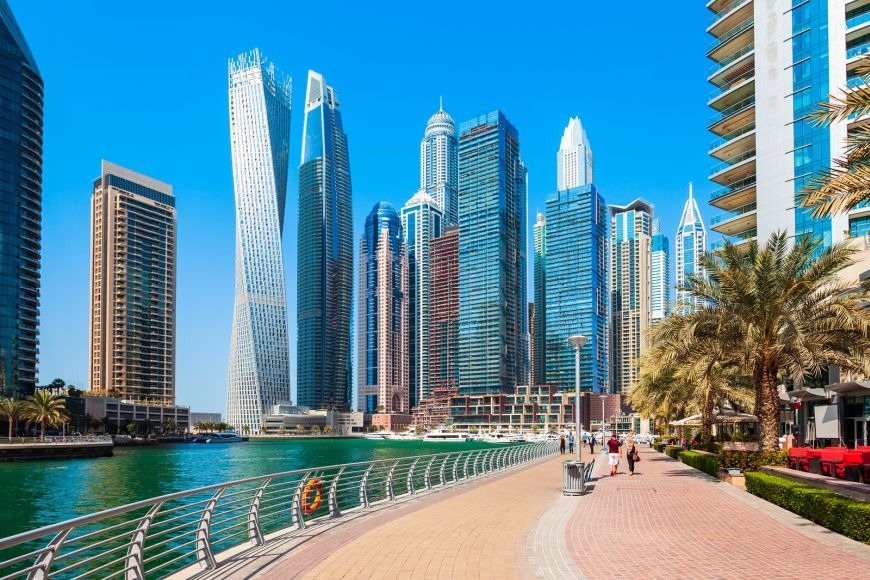Our partners at Santa Fe Relocation offer some essential tips to make your move to Dubai easy and problem free...
18 November 2019
| Last updated on 19 January 2020
With the 8 million population made up of 94% expats, Dubai can be considered the expat capital of the world. From the luxurious hotels, grandiose residences and turquoise beaches, the opulence and lifestyle attract hundreds of thousands every year.
Sorting the paperwork
Before you can move to Dubai you must ensure you have all the correct paperwork. The kind of residence visa you require will depend on where you are moving from. But almost all visas are based on a contract for employment. All visa applicants are subject to a medical check and tests.
Once you have your visa you will need to register for a Resident Identity Card as a matter of priority. It’s important that you get this card, as without it you will not receive your residence visa. And you are required to carry your ID card with you at all times.
Agree your salary package
Dubai’s luxury lifestyle does not come cheap. So, it’s important that expats relocating to the emirate for work negotiate a salary package that takes into account the expenses incurred as well as your knowledge and experience. Many people are swayed by the great tax implications here and forget that with or without a large tax bill, you will have a new set of financial obligations as an expat.
It is not uncommon for employers to include a relocation bonus/payment, as well as annual flight allowance, money towards education or childcare costs, and even money towards your accommodation costs. Most importantly, make sure your employer provides for a good quality health insurance package for you and your family. And as a Muslim country, just remember that the day of rest is Friday. This means that for many companies the working week runs from Sunday to Thursday.
SEE ALSO: Here Are the 4 Most Common Questions Asked About Shipping

Finding your new home in Dubai
Accommodation is the most expensive living cost in Dubai, alongside the generally high cost of living. The majority of accommodation available is furnished luxury apartments and condos, which are expensive but almost always include a gym, security and a pool. It’s common to be required to pay 6 – 12 months’ rent upfront. But if you’re lucky your new job will come with employer provided accommodation!
Where possible, search for your new home at the beginning of summer when rental prices drop in line with demand. And when finding your accommodation, only deal with agents who are registered with the Real Estate Regulatory Authority (Rera).
You will not be able to rent anywhere in Dubai without your residential visa and a Dubai bank account – so you must have acquired both before you can sign a tenancy agreement.
For more space, consider moving out of the city towards more suburban spaces. Thanks to good public transport links you can find quieter residential spaces within a good commute to work.
Getting to know the culture
As a Muslim country, there are many differences in social rules and law that you’ll need to understand and get accustomed too. It’s important to dress modestly and be considerate of the Islamic population. And there are specific rules about affection as well as public behaviour, drinking and smoking.
The best thing you can do for yourself when moving to Dubai is to spend time learning Arabic and getting to understand Islamic culture. More so than finding your new home or navigating your commute, this cultural awareness will ensure you settle quickly and avoid any issues.
What next?
For more help with your move to Dubai, get in touch with our move specialists. We have over 120 years of international move experience. At Santa Fe Relocation we make moving home easy for you.




.png?itok=HBSyMDok)









































































.png)



























.png?itok=0fOAXkOm)

























.png?itok=EH_x0Pha)
